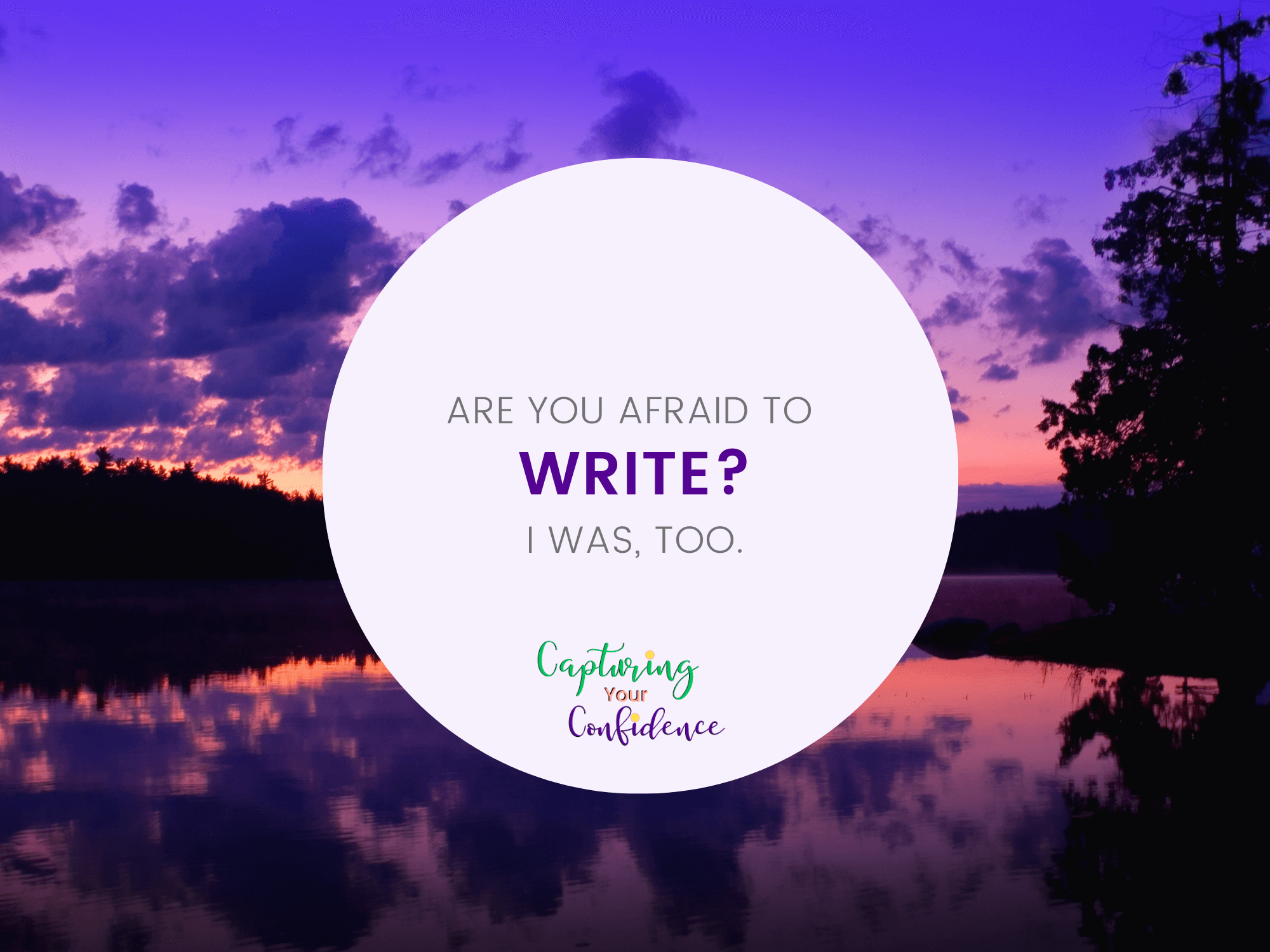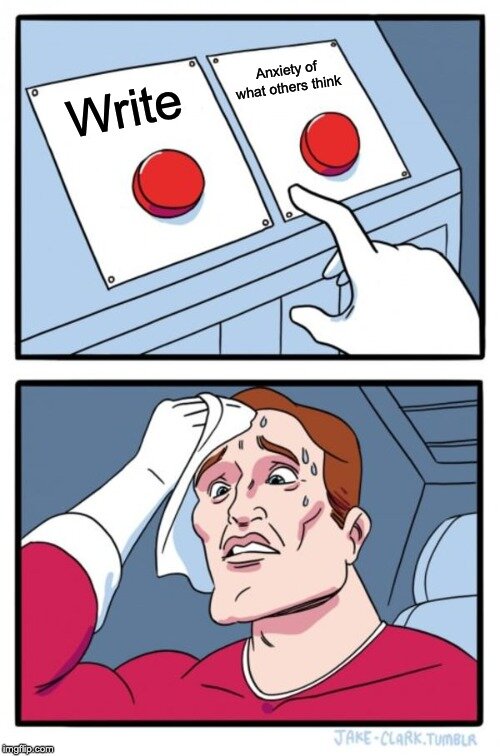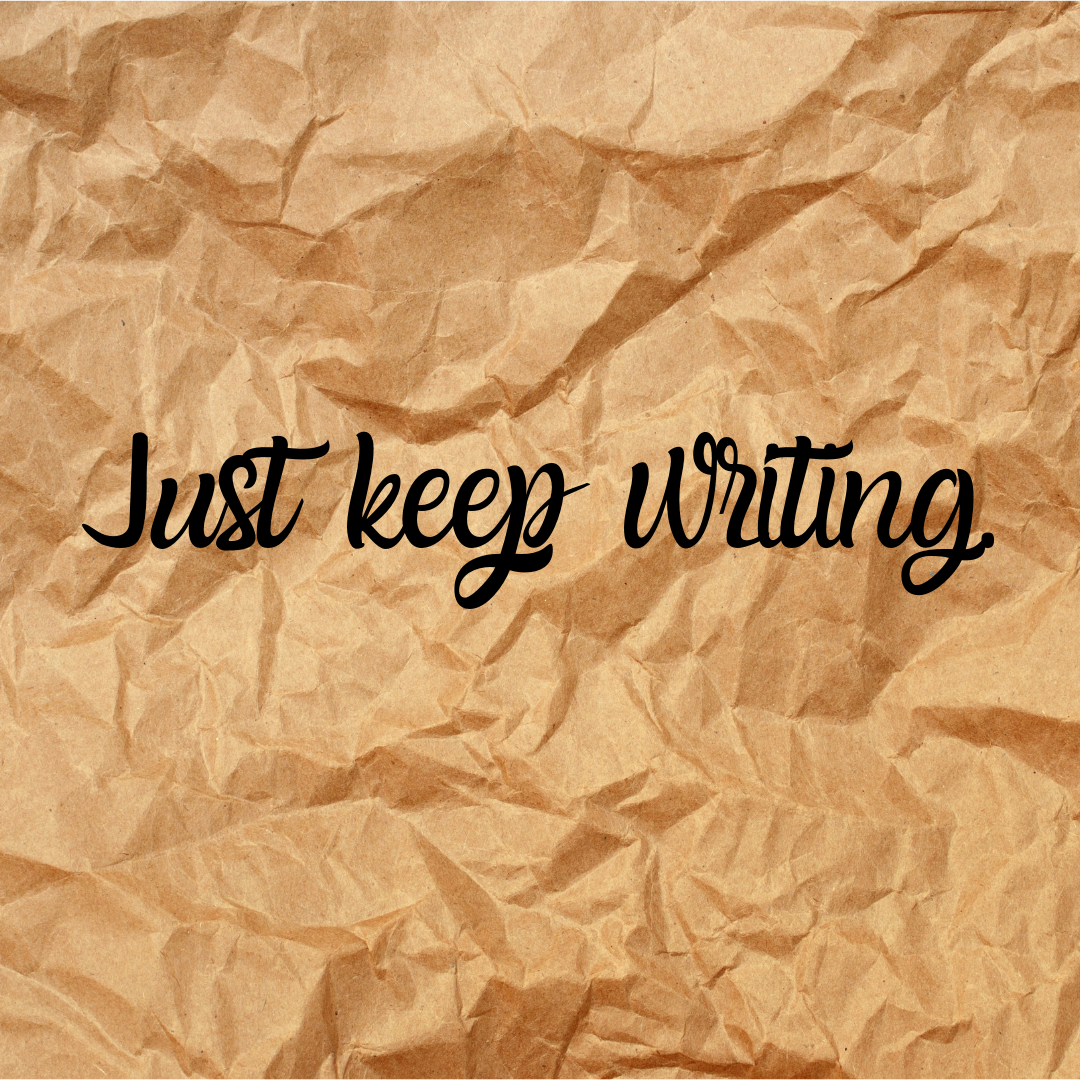Are You Afraid to Write? I Was, Too.
I’ve been making up stories and delighting in trying to figure out what characters would do since I was a little girl. I had stacks and stacks of short stories and pieces of novels written out in various stages of handwriting that has changed over the years.
But when I got to college as a creative writing major, I got my first real critics. You know, the ones who actually give you advice on how to make your writing better. Or the ones who say:
“This just isn’t working, and I don’t know why.”
Eighteen year old me had never had that kind of criticism before. Not only that, but eighteen year old me didn’t know what to think or how to make it better. And the people who were giving me criticism were more than a little vague.
The nail on the coffin of my writing dreams (for a long time) was the comment from my professor at the end of my first, and only college level creative writing class, who wrote on my story “Not impressed.” in red ink at the end.
Being the sensitive type, I cried. More than once. Due to other circumstances I changed schools, but I also changed majors. I switched and did my undergraduate degree in Literature because I could analyze the heck out of other people’s writing without fear of having my own creative thoughts critiqued.
I told myself that maybe I wasn’t really meant to write. At least not like that. I told myself that I just wasn’t as creative as other writers. I didn’t want it enough. I didn’t know anyone else who was writing what I was writing, so I didn’t have a sounding board.
I wish I could have reality checked myself sooner. All of that stuff that I told myself for so long? Complete bologna. Absolute bull. Part of writing is being critiqued, and we have to learn to grow from it rather than being destroyed by it. Super hard lesson to learn, at least for me.
So why in the world did I let that one experience define my writing life for so long? Good question. Until recently, I didn’t know. I thought it was because I was just too sensitive. (True, but not the reason.) Or maybe I was on a path to writing I just couldn’t see yet (also true, but still not the reason.)
I was scared. Utterly terrified...
I was scared. Utterly terrified that someone wouldn’t like my writing. That my writing wasn’t that good. That I just didn’t have any creative ideas to write about in the first place. That even if I did write something really good, no one would care (family and friends aside).
As a confident adult, though, I’ve realized that hardly any of those things are 1) valid and 2) reasons to stop doing what I love and what makes me feel fulfilled.
Here are a few specific fears you might have had and what you can do about them.
“No one will like my writing.”
Undertone: I need people to like me. I need people to validate my writing.
To ask yourself:
Why do you think this?
How do you know?
Have you experienced this before? If so, what feedback did you get?
Who are you writing for/to?
Actions to take:
Continue to write anyway.
Consider writing a different genre. So you didn’t do so well on a book? Why not try a short story or poem.
Look for a different audience. Maybe your writing is engaging, but the wrong people were reading it. If your friend doesn’t like romance books and you ask her to read yours, she might not like it as much as someone who reads them regularly.
Thoughts from others: Tucker Max does a great piece on book writing fears in his blog Scribe.
“My writing isn’t good.”
Undertone: I’m not talented. I don’t have it in me to create something good.
To ask yourself:
What do you already know about?
What areas do you feel confident about?
Why do you think your writing isn’t good?
How do you define “good”?
Action(s) to take:
Continue to write anyway.
Practice. Practice makes perfect! No one is born the perfect writer. All the greats had to practice to get where they are/were, too.
Read about how to write, and read good writing. There are plenty of great “how-to” books or books on crafting your writing. If your definition of “good” writing is really specific, you should also read that type of writing and dissect it. What is the writer doing? For what reasons?
Thoughts from others: Writer Dan Shewan has some tips to improve your writing, if you’re still feeling like you need some help.
https://www.youtube.com/watch?v=0JMCgBjTUg4
"Writing should be feelingful." - Richard Walter
“I am not inspired. I don’t have any great ideas.”
Undertone: I don’t have ideas that are worthy of other people’s time.
To ask yourself:
What are your ideas?
What makes an idea worthy of someone’s time?
If you have ideas and they aren’t worthy right now, what could you do to get them there?
Who are the “people” and why are you worried about wasting their time?
Action(s) to take:
Continue to write anyway.
Go somewhere new. Take a walk around the block. Take a short day trip. Go see your parents or a friend. Walk the dog. Do something besides stare at the paper. Think about other things, and when you come back, you will have a little different perspective.
Brainstorm your ideas and then pick one to write about. Look, not all of our ideas can be winners, right? That doesn’t mean that you don’t have any good ideas! Once you put them on the page together, you will be able to see which ones might work and which ones sounded cool in your head, but not on paper. Once you have a list, pick one and do some freewriting on it - whatever comes to mind.
Thoughts from others: The Write to Done Blog offers 31 ways to find inspiration when you’re just not feeling it. SmartBlogger offers a whopping 99 ways!
“No one will care about my writing, even if it turns out well.”
Undertone: I need someone to validate me. I need people to care about what I’m saying for it to be worth it.
To ask yourself:
Who do I need to care about my writing?
Why do I want them to care?
What would happen if I wrote something just for me?
How will I know if it is good?
Action(s) to take:
Continue to write anyway.
Write something personal. Write about something that hurts. Something that’s happy. Something that makes you laugh! You don’t have to share it, but write it. Even if you don’t share it, you still know that you did it. And, you can always come back to it later.
Write something that you want to write about and share it with someone you know will be honest with you. This is probably a hard step. But, when you write something that makes you happy, or sad, or whatever it is, someone around you will be interested. Even if it’s just because they want to support you, are curious, or just plain care about you as a person. Be brave and send that writing to someone who will tell you what they actually think instead of just the fluff and stuff comments.
Thoughts from others: Writer Jenna Moreci offers some sage advice about doubting your writing. (Just a heads up, there is some swearing!)
https://www.youtube.com/watch?v=HMwAXZ0v76c
“I’m creative, but I’m not a writer.”
Undertone: I can’t do it. I don’t have the skills. I don’t know where to start.
To ask yourself:
What can I do?
Where do other people start?
What would happen if I started something in the middle or wrote about exactly what I’m thinking at this moment?
What makes someone a writer? What if you were a writer?
Action(s) to take:
Continue to write anyway.
Do something creative & then write about it. If you’re creative (but not a writer) then it should be fairly easy to create something, right? Create that something you are inspired to create, or you have been thinking about for a long time. Once it’s created, write it’s story. Why did you create it? What does it mean to you?
Ask yourself why you don’t feel like a writer. You don’t have to actually ask out loud, if you don’t want to, but you should have a serious conversation/contemplation with yourself about why you don’t think you’re a writer. A lot of times this can come from imposter syndrome, but sometimes it’s a simple matter of how we define what a writer is.
Thoughts from others: Published writer Christian Fink-Jensen talks about six qualities that make up a successful author. Fink-Jensen focuses mostly on authorship of a book, but the six qualities absolutely apply to any type of writer you want to be.
So, are you scared? That’s okay! I didn’t share my novel with anyone until very recently! I’m talking within the last month. You can do it, though. Really. I believe in you, and you should, too.
I’d love to hear about your writing and your journey!






